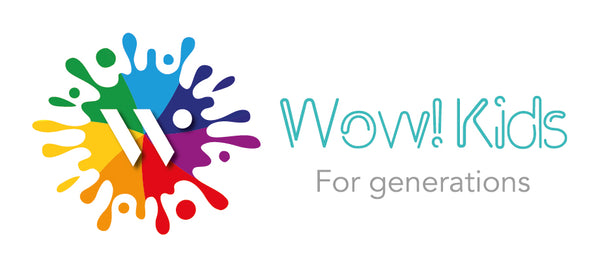
Raising Little Helpers: Age-Appropriate Chores That Boost Confidence and Brain Development
Share
At Wow! Kids Toys, we believe in more than just play; we believe in purposeful play. One of the simplest yet most powerful ways to foster responsibility, confidence, and cognitive development in children is by involving them in age-appropriate chores. Beyond making parenting easier, this practice lays a solid foundation for life skills, executive functioning, and emotional intelligence.
Why Should Kids Do Chores?
Teaching children to do chores isn’t about making them mini-housekeepers. It’s about instilling values, growing confidence, and promoting brain development. Research shows that chores teach children discipline, autonomy, and cooperation.
According to a long-term study by the University of Minnesota, children who started doing chores by age 3–4 were more likely to have better relationships, academic success, and career stability by their mid-20s. The study highlights that early responsibility can predict success better than IQ or socioeconomic status.
🔍 Key Brain Benefits of Chores for Kids:
-
Improved Executive Functioning: Tasks like sorting toys or setting the table require planning, memory, and attention, all core elements of executive functioning.
-
Boosted Emotional Regulation: Helping out makes children feel capable, reducing anxiety and increasing emotional control.
-
Stronger Neural Connections: Repetition of task-based skills (folding laundry, organizing toys) enhances neural pathways tied to coordination, problem-solving, and motor skills.
Chores by Age: A Developmental Guide
2–3 Years: “I Can Help Too!”
At this age, kids love to imitate. Keep tasks simple and praise them for every effort.
- Put toys away
- Wipe small spills with a cloth
- Toss trash in the bin
Developmental Benefit: Builds fine motor coordination and a sense of order.
3–4 Years: “Look What I Can Do!”
Now, kids begin understanding routines and simple multi-step tasks.
- Help make their bed
- Water plants
- Feed pets
- Put dirty clothes in the laundry basket
Developmental Benefit: Introduces empathy (feeding pets), sequencing, and responsibility.
4–5 Years: “I’m a Big Kid Now!”
At this stage, kids are eager to feel grown-up. They can repeat more complex tasks with less supervision.
- Set the table fully
- Wipe down tables and surfaces
- Sort laundry by color
- Help prep ingredients (wash veggies, stir batter)
Developmental Benefit: Enhances logical thinking and confidence through routine participation.
5–6 Years: “I Got This!”
Children are now ready for structured routines and consistency in task performance.
- Fold simple clothes
- Sweep or vacuum small areas
- Organize books and toys
- Help pack their lunchbox
Developmental Benefit: Reinforces independence, categorization skills, and spatial awareness.
Pro Tip for Parents: Keep It Encouraging and Light
The goal is progress, not perfection. According to the American Academy of Pediatrics (AAP), encouraging rather than enforcing task completion leads to greater emotional resilience and longer-term habit adoption. Praise their efforts (“You did it all by yourself!”) rather than just the results.
Conclusion: Start Small, Dream Big
Letting kids help out, even with the smallest tasks is a powerful form of early learning. The more we trust them with real responsibilities, the more confident and capable they become. And with Wow! Kids Toys, you can combine learning, fun, and responsibility to raise children who thrive in every environment — from the playroom to the classroom and beyond.

